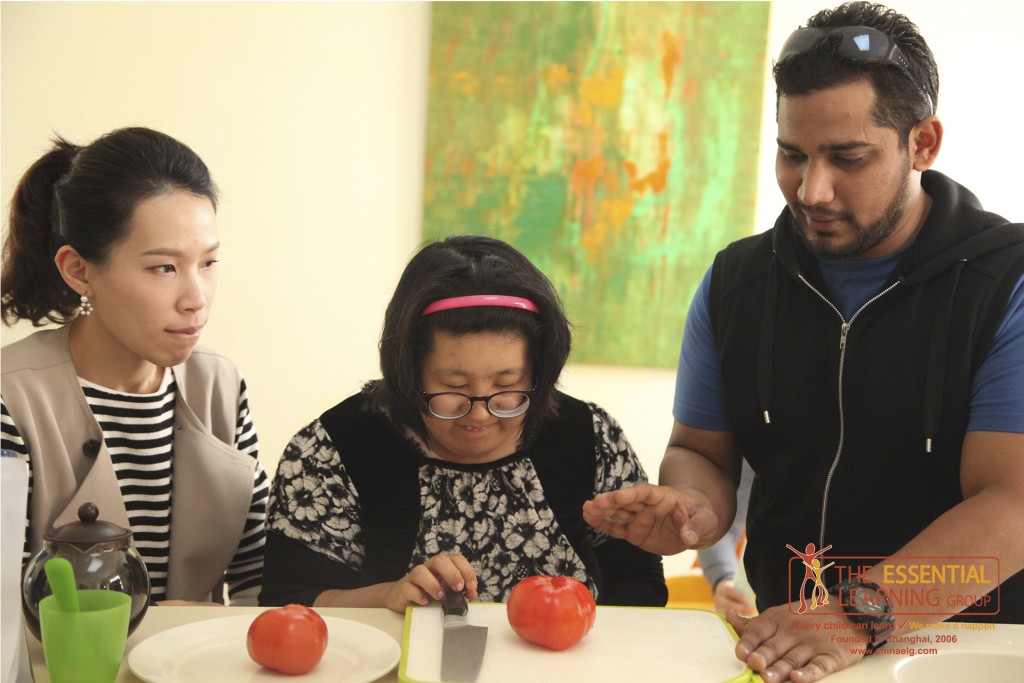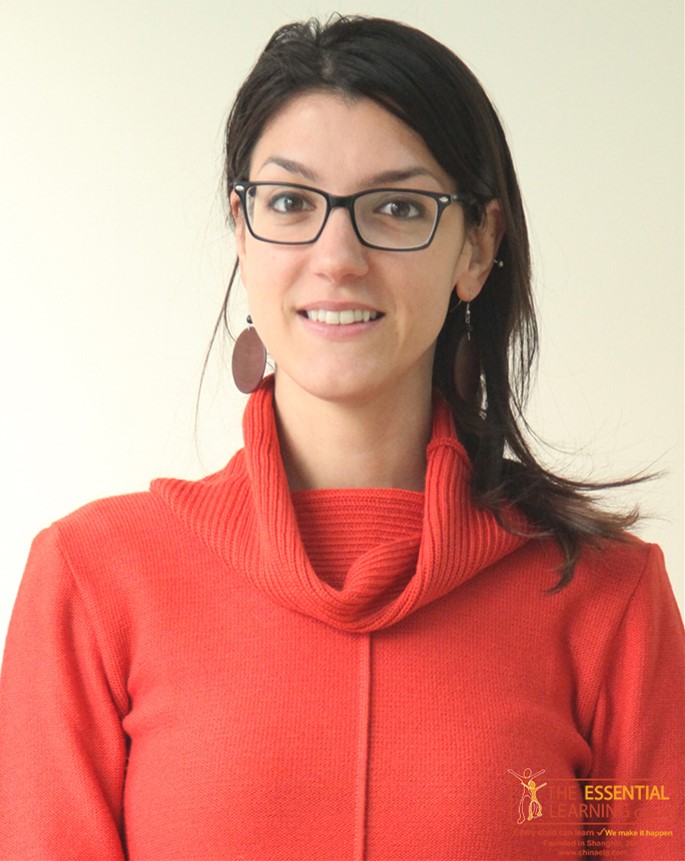Compiled by Robin Shepard, Assistant Program Director
It is finally Spring! In Shanghai, it always feels like a definite change of air and attitude. We can feel it at ELG too. Spring is one of the most amazing and rewarding times to be working with the children because it is a time of growth, change, and maturity. Skills that seemed to lie dormant for the winter suddenly show themselves in full force and we have a front row seat to all of it. With that in mind, the theme in ILC over the past month was Planet Earth. Read on for stories and experiences from this wonderful month!
LIFE SKILLS PROGRAM by Christina Klausen
While working with our theme the group has been very motivated and practiced various skills such as using a computer or iPad to conduct research and writing about their findings. They then presented their research in an art project by making their own “Planet Earths” out of paper and then writing facts about the Earth that they had learned during their research time.
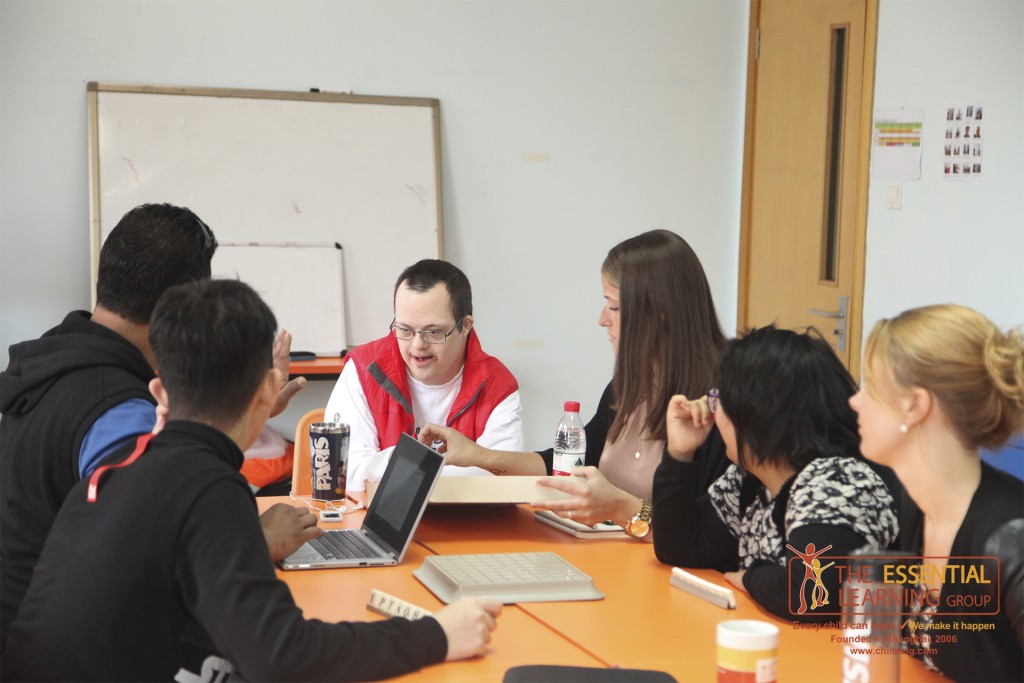 Weekly outings are an important way that the LSP group gets to know their community. Some of the most important learning takes place before they even set foot on the street. First, they have to plan the outing. On a recent outing, the members of the Life Skills Program planned a trip to the movie theater to watch ’Zootopia’. Together they decided which movie they would like to watch, what time the movie was playing, the price for the tickets, and how to get to the movie theater by subway. The group did a fantastic job planning the trip and we had a great day together. We ended our trip by eating pizza at a restaurant before riding the subway back to ELG. By planning and participating in the outing, the group practiced social skills, community skills, and budgeting skills as well as how to work together as a group.
Weekly outings are an important way that the LSP group gets to know their community. Some of the most important learning takes place before they even set foot on the street. First, they have to plan the outing. On a recent outing, the members of the Life Skills Program planned a trip to the movie theater to watch ’Zootopia’. Together they decided which movie they would like to watch, what time the movie was playing, the price for the tickets, and how to get to the movie theater by subway. The group did a fantastic job planning the trip and we had a great day together. We ended our trip by eating pizza at a restaurant before riding the subway back to ELG. By planning and participating in the outing, the group practiced social skills, community skills, and budgeting skills as well as how to work together as a group.
Every Thursday, the Life Skills Program practices their cooking skills. They make a shopping list, go to the supermarket to buy the ingredients needed for their dish. Then they have to work together as a team and follow the recipe to prepare and cook the food. Each week one of the members of the Life Skills Program gets to be the head chef and leads the cooking session. The group really enjoys these cooking sessions while they are practicing and developing home skills, communication skills and, most importantly, making decisions by taking on responsibility and leadership in a group setting.
PRIMARY & SECONDARY PROGRAMS by Letizia Canali
The children in the Primary and Secondary Programs had lots of fun with the activities of this theme:
In Primary T, the children paid particular attention to the idea of “Reduce, Reuse, Recycle.” They talked about pollution, conducted interesting science experiments, prepared a special performance in Music, and connected with the Earth Hour (an event of the World Wildlife Fund) by making beautiful, unique candle holders using empty bottles and old crayons in Arts & Crafts.
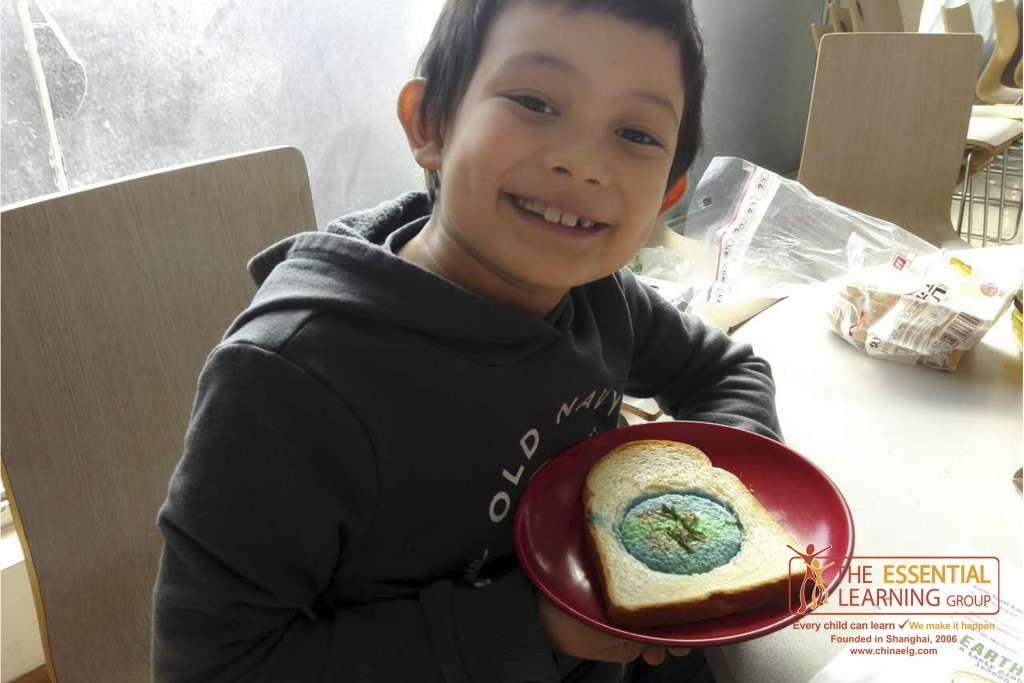 The Primary B and Secondary Programs have delved deeply into the naturalistic side of the Planet Earth theme. They made amazing papier-mâché globes by using balloons and old newspapers, created 3D shapes in Arts & Crafts, and used strands of wool to collage 2D globes during Fine Motor activities. In Science, they experienced how to make “Earth Toast” by using green and blue food colors on slices of bread. They learned an Earth song in Music, and all worked on recognizing the main natural elements. The culmination of this wide and interesting topic was a field trip to Gu Cun Park, where the children got to experience nature first hand, surrounded by beautiful flowering plants, trees, and grass.
The Primary B and Secondary Programs have delved deeply into the naturalistic side of the Planet Earth theme. They made amazing papier-mâché globes by using balloons and old newspapers, created 3D shapes in Arts & Crafts, and used strands of wool to collage 2D globes during Fine Motor activities. In Science, they experienced how to make “Earth Toast” by using green and blue food colors on slices of bread. They learned an Earth song in Music, and all worked on recognizing the main natural elements. The culmination of this wide and interesting topic was a field trip to Gu Cun Park, where the children got to experience nature first hand, surrounded by beautiful flowering plants, trees, and grass.
 EARLY INTERVENTION PROGRAM – PUDONG by Robin Shepard
EARLY INTERVENTION PROGRAM – PUDONG by Robin Shepard
The theme of “Planet Earth” was a time of habitat exploration and discovery in the Early Intervention Program in PuDong. Each week, we presented a different habitat: Jungle, Arctic, Desert, and Ocean. During each habitat study, the children learned about the defining characteristics of the land and environment and the animals that live there.
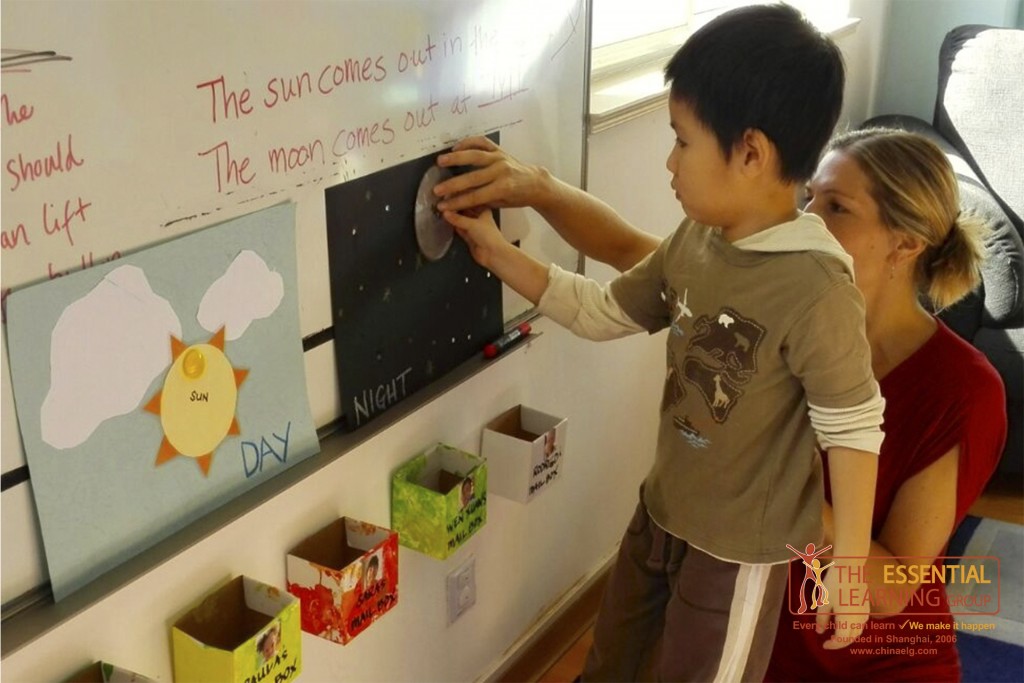 For each habitat, we developed a class story and a cast of 6-8 animals to find out more about. We read the story together each day and the children got to pick their favorite animals. Along the way, we learned various songs and visual games and the children took great delight in imitating animal movements and sounds. Our Arts & Crafts projects further supported the habitat study format. Each week the children made a representation of the habitat in paper/collage form and then added “Who am I?” pop-up windows for each animal in the place they might be found in that habitat. In this way, the children could learn and practice basic vocabulary and concepts in a number of different mediums and interactive experiences.
For each habitat, we developed a class story and a cast of 6-8 animals to find out more about. We read the story together each day and the children got to pick their favorite animals. Along the way, we learned various songs and visual games and the children took great delight in imitating animal movements and sounds. Our Arts & Crafts projects further supported the habitat study format. Each week the children made a representation of the habitat in paper/collage form and then added “Who am I?” pop-up windows for each animal in the place they might be found in that habitat. In this way, the children could learn and practice basic vocabulary and concepts in a number of different mediums and interactive experiences.
 EARLY INTERVENTION PROGRAM – PUXI by Alice Wen
EARLY INTERVENTION PROGRAM – PUXI by Alice Wen
In the Early Intervention Program, field trips are not only a fun way to break up the daily routine, they also provide opportunities to enrich the lessons the children learn during each themed unit of study. A balance of informal, child-directed learning activities are an important component of the learning experience, so field trips are an ideal opportunity to apply new found knowledge in a personal way. Both the English-speaking and Chinese-speaking Early Intervention Programs in Puxi had a recent visit to the Shanghai Zoo, building on their weekly theme of “Zoo Animals.”
 We taught the children what it means to be an observer and they got to practice in such a fun way by watching the wild animals within their habitats. We explored the bird habitats, glimpsed lions and tigers in their unique environment, and even had a chance to see the children’s favorite animals… the elephants, which have a different environment from all the others. There is a wealth of information about each exhibit, in the form of photographs and interesting facts and statistics. We shared this with the children and had some great discussions about the types of amphibians, mammals, herbivores, and carnivores we observed.
We taught the children what it means to be an observer and they got to practice in such a fun way by watching the wild animals within their habitats. We explored the bird habitats, glimpsed lions and tigers in their unique environment, and even had a chance to see the children’s favorite animals… the elephants, which have a different environment from all the others. There is a wealth of information about each exhibit, in the form of photographs and interesting facts and statistics. We shared this with the children and had some great discussions about the types of amphibians, mammals, herbivores, and carnivores we observed.
Though the day was full of interesting twists and turns, we were so impressed with the stamina of the children, most of whom managed to walk around the whole zoo with ease. We had so much fun being observers at the zoo and it will be exciting to see where our observations skills can next be put to use.


